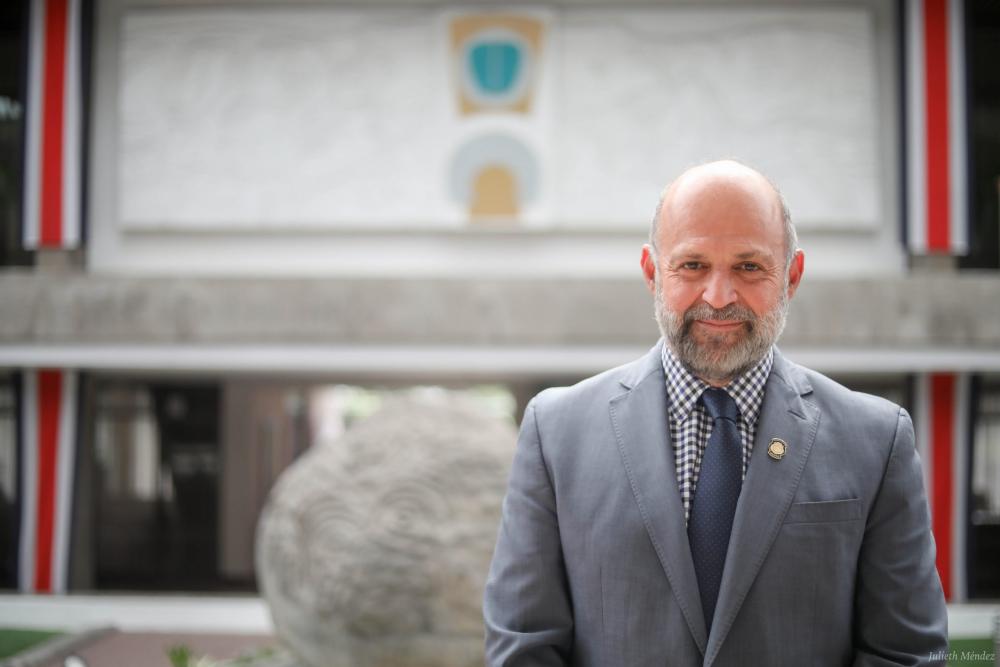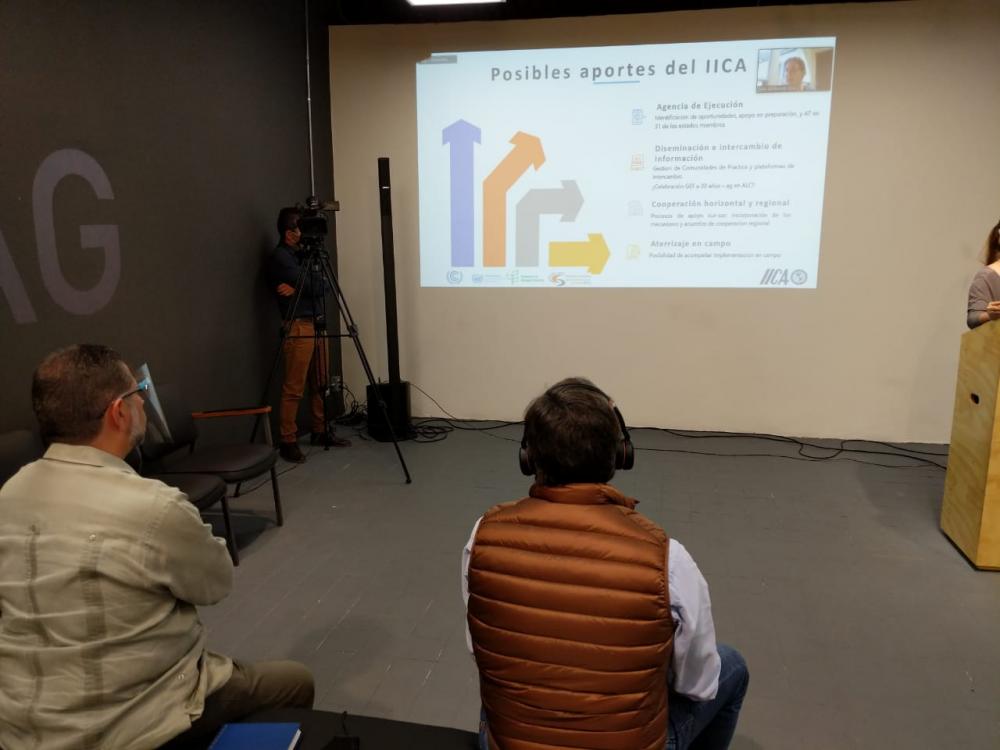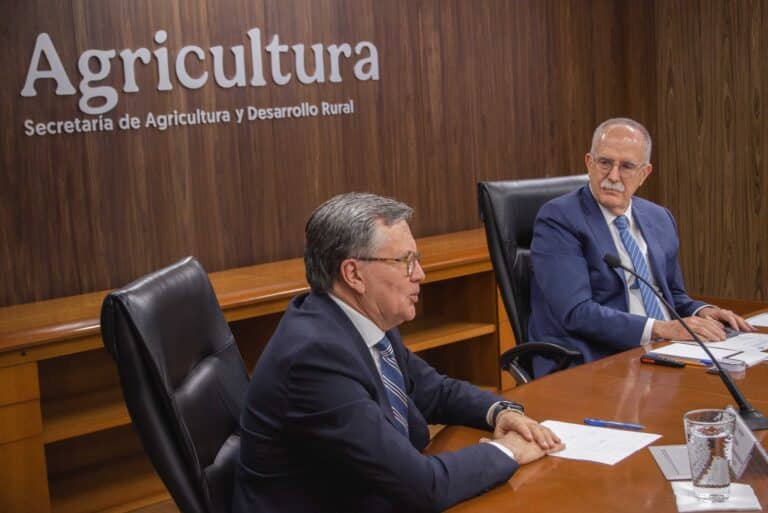Carlos Manuel Rodríguez, Minister of the Environment and Energy of Costa Rica, who will become the CEO of the GEF in a few weeks, participated in a virtual tour of IICA’s facilities together with the Institute’s Director General, Manuel Otero.

San Jose, 14 August 2020 (IICA). Carlos Manuel Rodríguez, Minister of the Environment and Energy of Costa Rica, who will begin serving as the CEO of the GEF (Global Environment Facility) as of September 1, will receive support from IICA in order to implement actions aimed at strengthening the adaptation of agriculture to climate change in Latin America and the Caribbean, with a focus on soil management and recovery, good agricultural practices and payment for environmental services, among other areas.
Manuel Otero, Director General of the Inter-American Institute for Cooperation on Agriculture (IICA), reiterated his support to Rodríguez and expressed his interest in developing joint initiatives with the GEF, as part of the strategic partnerships that the hemispheric organization promotes to attract more resources for and foster innovation in agriculture.
For instance, IICA could work with the GEF in the Americas as an implementing agency for projects aimed at disseminating and exchanging information, fostering regional and horizontal cooperation, as well as implementing actions in the field.
Otero guided Rodríguez on a virtual tour of the projects that form part of an “IICA with Open Doors”, such as the Interpretive Center for Tomorrow’s Agriculture (CIMAG), the Fab Lab and the Typical Rural House, which operate at the Institute’s headquarters in San Jose, Costa Rica.
“I am impressed by the development of these initiatives, which will allow for overcoming the challenges of climate change in agriculture, such as through soil use and conservation. Although climate change adaptation has generally represented a less appealing agenda than mitigation, ecosystem-based adaptation is a priority for agriculture”, stated Minister Rodríguez.
The future CEO of the GEF noted that, with support from international institutions like IICA, the global agency would be able to strike a balance between both types of measures (mitigation and adaptation).
“I commend IICA on its capacity for leading initiatives at the farm level and conducting comprehensive assessments of production systems and adequate soil use”, added the current Costa Rican Minister of the Environment and Energy.
The Director General of IICA informed Rodríguez that the Institute manages a portfolio of strategic partnerships with organizations that share its vision for achieving a more sustainable, inclusive and modern agriculture sector with a wealth of knowledge and innovation, such as Microsoft, Bayer and the Tropical Agricultural Research and Higher Education Center (CATIE).

Otero highlighted several of IICA’s most recent partnerships, including those currently underway with Precision Agriculture for Development (PAD), an organization co-founded by Michael Kremer, winner of the 2019 Nobel Prize in Economics, which is driving the digital revolution of agriculture in the Americas; and with Rattan Lal (2020 World Food Prize and IICA Goodwill Ambassador for Sustainable Development), which is geared towards driving soil recovery in the hemisphere.
“We are seeking to offer solutions to the challenges we face at the moment in agriculture, such as how to attract young professionals to the sector and drive the use of technology tools. However, using the example of the Typical Rural House, we are also seeking to demonstrate our roots, since, in order to show where we are going, we must know where we are coming from”, explained Manuel Otero.
According to Carlos Manuel Rodríguez, investing in adapting agriculture to climate change can have very good repercussions.
A few days after assuming the position of CEO of the GEF, the Minister stated “We can move forward if we insist on improvement in public policies, if we tear down the barrier that has been erected between the environment (or conservation) and agriculture (or production). Costa Rica can be an example of how to resolve this conflict”.
More information:
Institutional Communication Division of IICA.
comunicacion.institucional@iica.int











